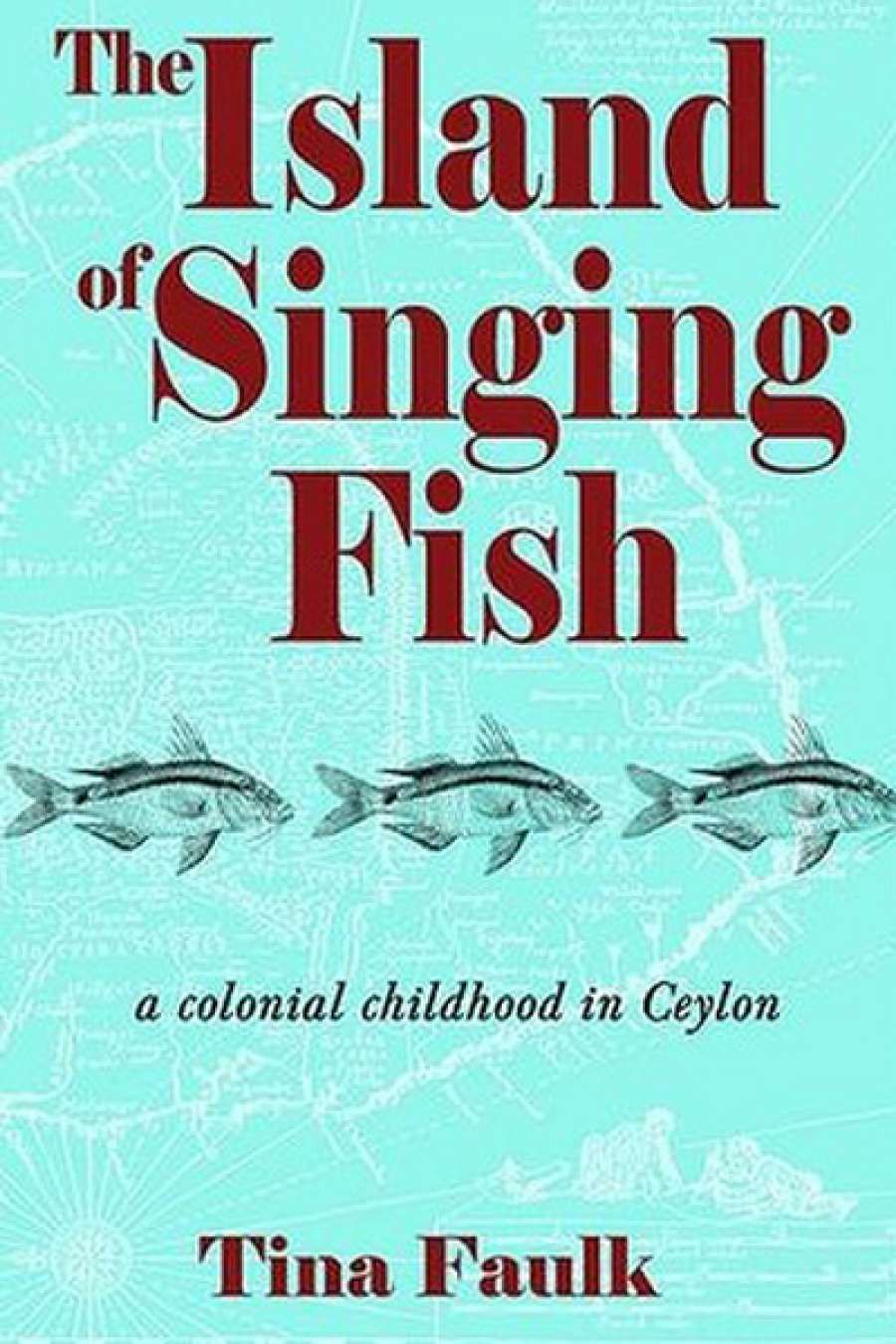
- Free Article: No
- Contents Category: Asian Studies
- Custom Article Title: Claudia Hyles reviews 'The Island of Singing Fish' by Tina Faulk
- Review Article: Yes
- Online Only: No
- Custom Highlight Text:
Two government acts shaped Tina Faulk’s life: Ceylon’s 1956 Official Language Policy Act, known as the Sinhala Only Act, and Australia’s Immigration Restriction Act of 1901, better known as the White Australia policy. The first virtually disenfranchised not only Faulk’s Burgher community, but also Sinhalese and Tamil middle-class élites, whose primary language, outside the family circle, was English. Countless Burghers were civil servants and, even if multilingual, were now unable to compete with Sinhalese-educated people for post-Independence public service positions. Similar selection criteria applied to military and commercial jobs.
- Book 1 Title: The Island of Singing Fish
- Book 1 Subtitle: A colonial childhood in Ceylon
- Book 1 Biblio: $25 pb, 181 pp
Many Burghers of the professional classes reluctantly decided to leave the beautiful island, their home for generations. If Australia was to be their new home, the émigrés, to comply with restrictive White Australia regulations, had to prove seventy-five per cent (later fifty) European heritage, and to ‘look European’. To validate applications, genealogical records held by the Dutch Burgher Union were consulted. This investigation forms the basis of Faulk’s exploration.
Faulk has a light, charming touch, but the work is a quick history of Ceylon (Sri Lanka since 1978) as much as the story of a colonial childhood. Her delight in history often escapes into irrelevance and careless research. Quentin Bell was not Virginia Woolf’s brother; Indian Marwari horses were not the ancestors of the famous Australian ‘walers’; it was the poet William Cowper, not Bishop Heber, who said ‘the cup that cheers but not inebriates’; and if Hermann Hesse arrived in Ceylon in 1911, how could he be ‘seeking respite from the horrors of the Great War’?
It is difficult to understand how the author, a former journalist, could make so many mistakes in spelling, grammar, punctuation, and repetition. The book is primarily for family and friends’. It is a pity no one proofread it carefully first.


Comments powered by CComment